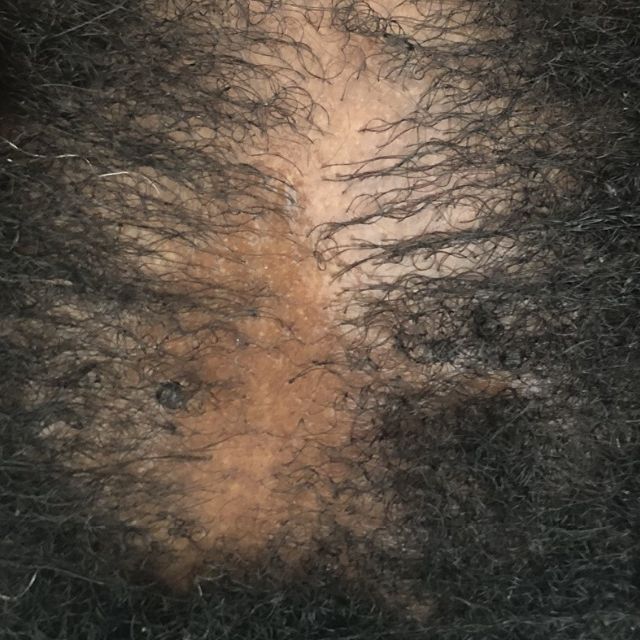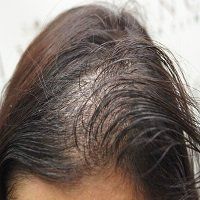Menopausal Hair Loss
Hair changes during menopause?
Hormonal changes don’t have to mean hair loss. If you are suffering from this condition, make an appointment so you can start getting the treatment that is right for you.
Book an Appointment
Speak directly with a qualified trichologist and get clear, practical advice.
Understanding Hormonal Changes and Hair Loss
Menopause and Hormonal Shifts
Menopause represents a profound biochemical transformation in a woman's body, with hormonal fluctuations triggering complex physiological changes—perhaps most visibly manifested through hair health. This intricate process involves a delicate interplay of hormones, nutritional factors, and cellular mechanisms that directly impact hair growth and retention.
Menopause, Hormone Imbalance, and Hair Loss
As women approach menopause, typically around age 50, significant hormonal changes occur that can dramatically impact hair health. The decline in key hormones like progesterone and oestrogen creates a cascade of effects on the hair follicles.
What is menopausal hair loss?
Menopausal hair loss is a condition that can affect any female who is at peri-menopausal or menopausal stage of their lives, generally between the ages of 45 to 60. When sex hormone levels decline, becoming unbalanced, the hair spends less time in the growing phase, leading to thinning and reduced volume.
What causes menopausal hair loss?
Menopausal hair loss is directly attributable to an imbalance of the following hormones:
Oestrogen - This hormone plays a crucial part in hair growth cycles. When levels decline, hair spends less time in the growing phase, leading to thinning and reduced volume.
Progesterone - This hormone functions as a natural 5-alpha-reductase inhibitor (an enzyme that ultimately causes hair loss). Progesterone is a natural steroid and sex hormone produced in both female and male bodies.
Testosterone - As hormone balance shifts, testosterone can become more dominant. This increase leads to higher levels of dihydrotestosterone (DHT), a key contributor to pattern hair loss.
Who can be affected menopausal hair loss?
All women will arrive at the destination of menopause at some point. Transitioning through Peri-menopause with physical changes such as hot flushes, brain fog, and night sweats. It is a natural point at which the ovaries cease to produce/release ovum and monthly periods stop. If we consider the hormonal changes a triggering factor, it is understandable how tricky it is to stop hair from thinning. The Reproductive Hormones become unbalanced when the ovaries stop producing the levels of hormones previously produced. The hormones oestrogen, testosterone and progesterone and their correct function are imperative for our health.
How is menopausal hair loss treated?
Here at TrichoSynergy we treat peri-menopausal and menopausal women with thinning hair and hair loss - this is my specialty. After your consultation, I create a personalised hair and scalp treatment plan for you. I will examine your hair condition and with the aid of your hormone levels, determine the cause of your thinning hair and hair loss. This will inform of your likely prognosis.
will then take the next appropriate steps to support you on your journey where possible, to improve the density and volume of your hair. This may require vitamin and mineral supplementation and/or external products to camouflage any large areas of visible scalp, so they blend and cannot be seen. I may recommend SMP to temporarily cover the area of scalp with a diffuse SMP treatment. Electrotherapy and Phototherapy are very well received and most women's hair responds positively and improvements are seen.
Worried about menopausal hair loss?
If you are experiencing any concerns about your menopausal hair loss, book a consultation and start regenerating your hair and revitalising your scalp.
Unsure how menopause is affecting your hair?
Menopause changing your relationship with your hair? You're not alone - send us your question and we'll guide you.
before
booking your consultation appointment, complete the form below.
See more hair and scalp conditions
Are you suffering from thinning hair, hair loss, patchy areas or Itchy flaky scalp? If you think you are suffering from any of the conditions you see book an appointment with your local trichologist. The sooner you start treatment the better.





